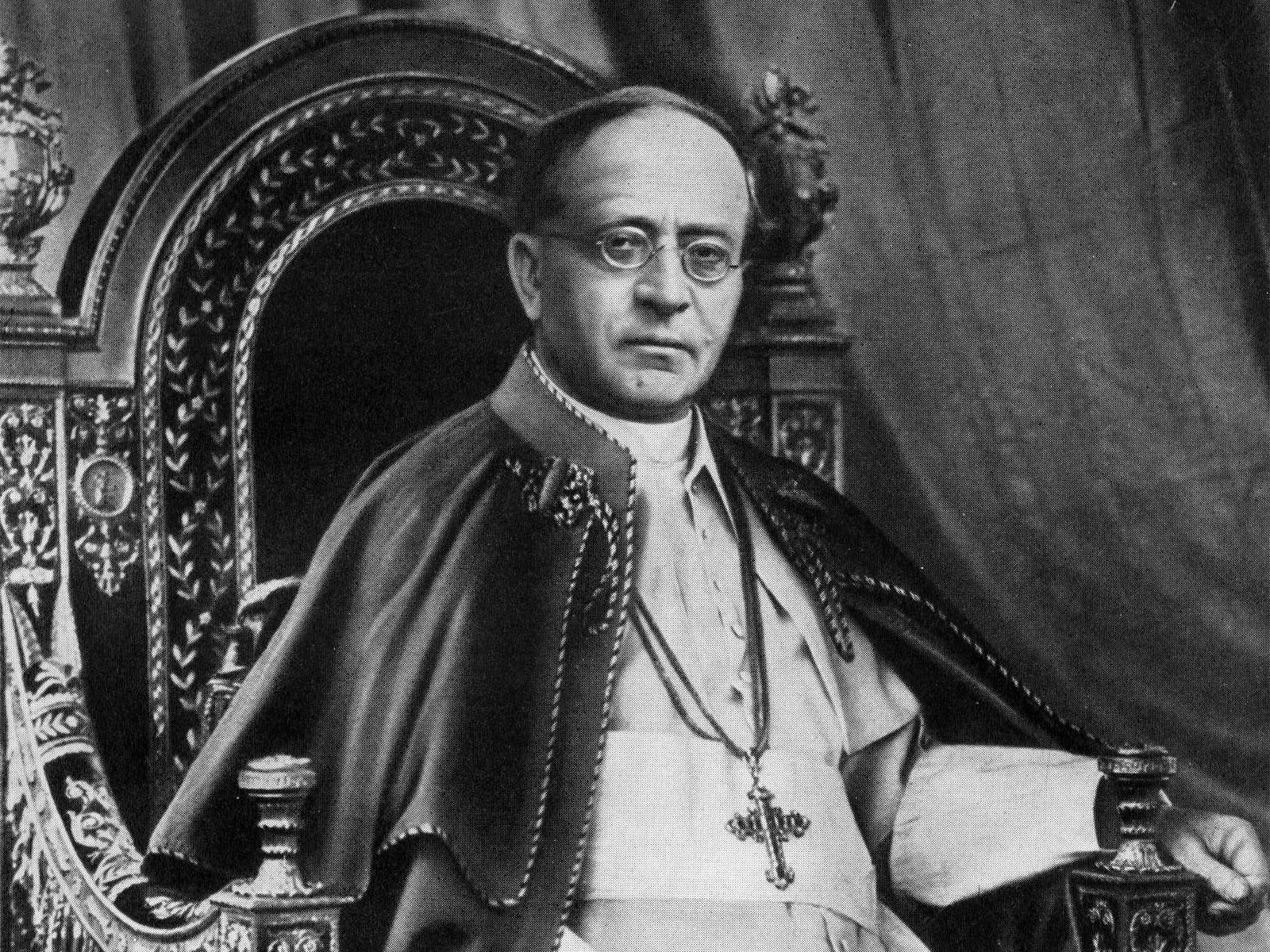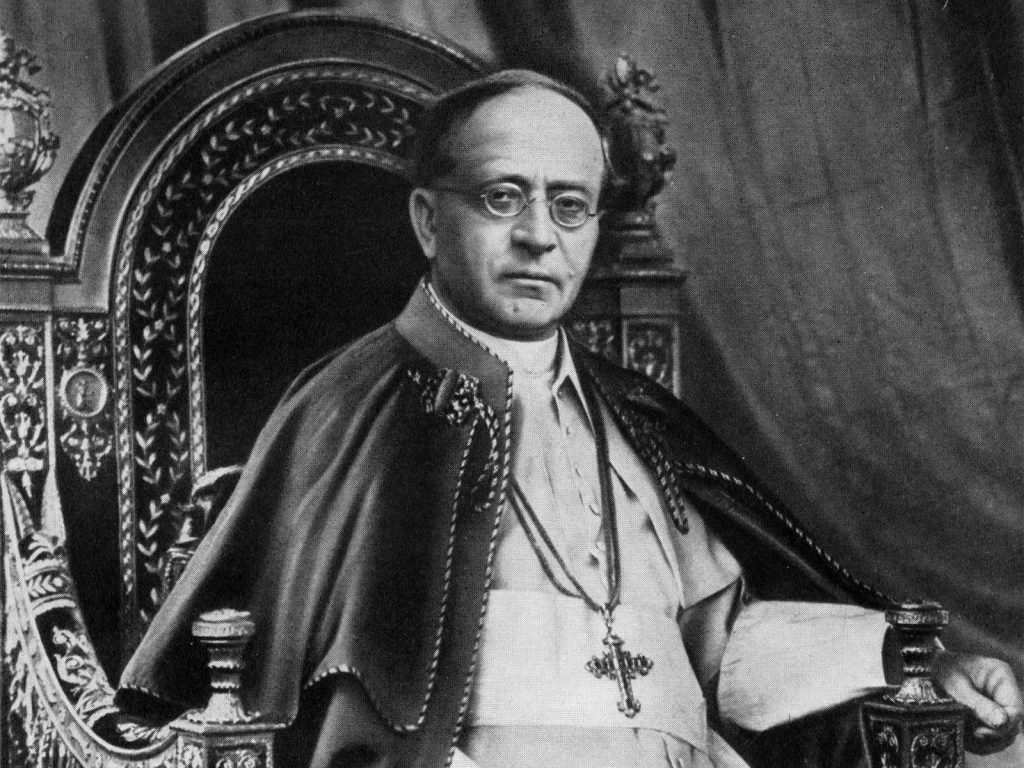
(RNS) — Lost in the shorter, busier, cooler days of late November, around Thanksgiving but before the Christmas rush, is an important Christian observance called the Solemnity of Our Lord Jesus Christ, King of the Universe.
It was instituted in 1925 by Pope Pius XI in an encyclical titled “Quas Primas” and was Pius’ response to the increasing secularization and nationalism in the aftermath of World War I, which saw the fall of the royal houses of the Hohenzollerns, Romanovs, Habsburgs and the Ottoman Empire, all within four gruesome years.
Thus Christ the King came into a seemingly extinguished Christendom with live memories of the Great War’s incomprehensible human carnage and epochal political upheaval. Then, as now, modern people were pulled in competing directions about where their loyalties lay. Pius’ encyclical drew richly on Old and New Testament teaching about divine kingship. In answer to the political chaos he offers the comfort of a king “of whose kingdom there shall be no end.”
Not even the most ardent Protestant biblicist could object. Indeed, the feast day has taken on an increasingly ecumenical character and is better known nowadays by its Protestant name, Christ the King Sunday.
Jesus’ kingship had been expounded long before “Quas Primas,” of course. Pius’ notions are captured in a well-loved (though controversial) hymn from the 1870s that proclaims, “Crowns and thrones may perish, kingdoms rise and wane; But the church of Jesus constant will remain.” Others come to mind for anyone who has attended church for any time: “Come Thou Almighty King,” “Rejoice! The Lord Is King,” “Crown Him With Many Crowns,” “Praise, My Soul, the King of Heaven,” “All Glory, Laud, and Honor (to Thee, Redeemer, King).” That last was composed by Theodulf of Orleans in 820.
So, is Christ king? Does the image matter to Christians anymore?
It should. Christ the King offers both a hopeful and a sobering reminder to Christians whose loyalty to Jesus becomes subordinated to political ideology. In an era of resurgent nationalism, a belief in Christ as king guards against the ever-present and profoundly unchristian tendency to elevate politics over faith.
Some would be tempted to impose the kingship of Christ by coercion or force of law. When adherents of Catholic Christian nationalist Nick Fuentes chanted “Christ is king!” near the White House the day the U.S. Capitol was overrun, it was palpably a cry against declining Christian cultural power, not for the Christian submission that Pius called for, a call that Christ reign in Christians’ hearts, minds, wills and bodies.
Not that Christ the King doesn’t point up serious problems of pluralism and tolerance we have not solved yet. The first new British sovereign in seven decades awaits his coronation — his anointing in the name of the only king greater than he — amid global concern about whether democracy can prevail over anti-pluralistic nationalist and fascist-adjacent currents. King Charles’ reign has already invited questions about whether a Christian state even makes sense in the modern world and whether it can survive.
The aftereffects of European empire now mean that the nations that invented the divine right of kings and put Christ above their own are subsuming diverse religious populations and institutions into their civic life. Charles’ new prime minister and the Conservative Party’s new leader, the Right Honorable Rishi Sunak, is a practicing Hindu and an icon for his nearly one million British co-religionists (and many millions more elsewhere).
In advance of the G20 meeting in Indonesia earlier this month, the international organization held its first Religion Forum, the “R20.” Former U.S. ambassador to the Holy See Mary Ann Glendon attended as a delegate and observed “earnestness and palpable goodwill.”
If there is an echo of the crusaders in “Christ the King,” there is no note of it in the way Charles and leaders of other historically Christian-dominated nations have resolved to move forward on faith. If religion, reduced to diplomatspeak, seems to pale a bit, it may be better that way. Our triumphalist line has not prevented the diminishment of faith in every sense.
Which brings us to American evangelicals, who, regrettably tend not to observe Christ the King Sunday. This is one more instance in which they should unite more closely with global ecumenical Christianity. It’s not a theological problem — conservative evangelicals are inherently comfortable with “King Jesus” language. Rather, evangelicals, having grasped for political salvation, have the most to lose in submitting to a king that asks them to put off the trappings of power. In the end, Christ’s kingship is a spiritual matter for Christians. And that needs to be enough.
(Jacob Lupfer is a political strategist and writer in Jacksonville, Florida. The views expressed in this commentary do not necessarily reflect those of Religion News Service.)

